The Hague – In a fiery address, Geert Wilders, leader of the Dutch Party for Freedom (PVV), delivered a stark warning ahead of what he called “the most important elections ever.” Speaking with urgency and defiance, Wilders painted the upcoming vote as a battle for the very survival of Dutch identity, culture, and security.
Throughout the speech, he focuses on a hardline immigration and asylum agenda, a set of social and economic proposals aimed at lowering costs for Dutch households, and a broader cultural appeal to patriotism and traditional values—summed up in his recurrent call to defend “God, Homeland, and Family.”
Stopping Fake Refugees and Freeloaders
Wilders begins by arguing that too many “fake fugitives,” “freeloaders,” and criminals are entering the Netherlands and living off Dutch resources. He states plainly: “starting from page one, we are going all in for a complete halt to asylum. So no one else will be allowed in.”
He outlines immediate measures: closing borders to new asylum seekers, turning people back at the border, suspending family reunification for asylum applicants, and intensifying border control—proposing that the Dutch army be used to guard the borders.
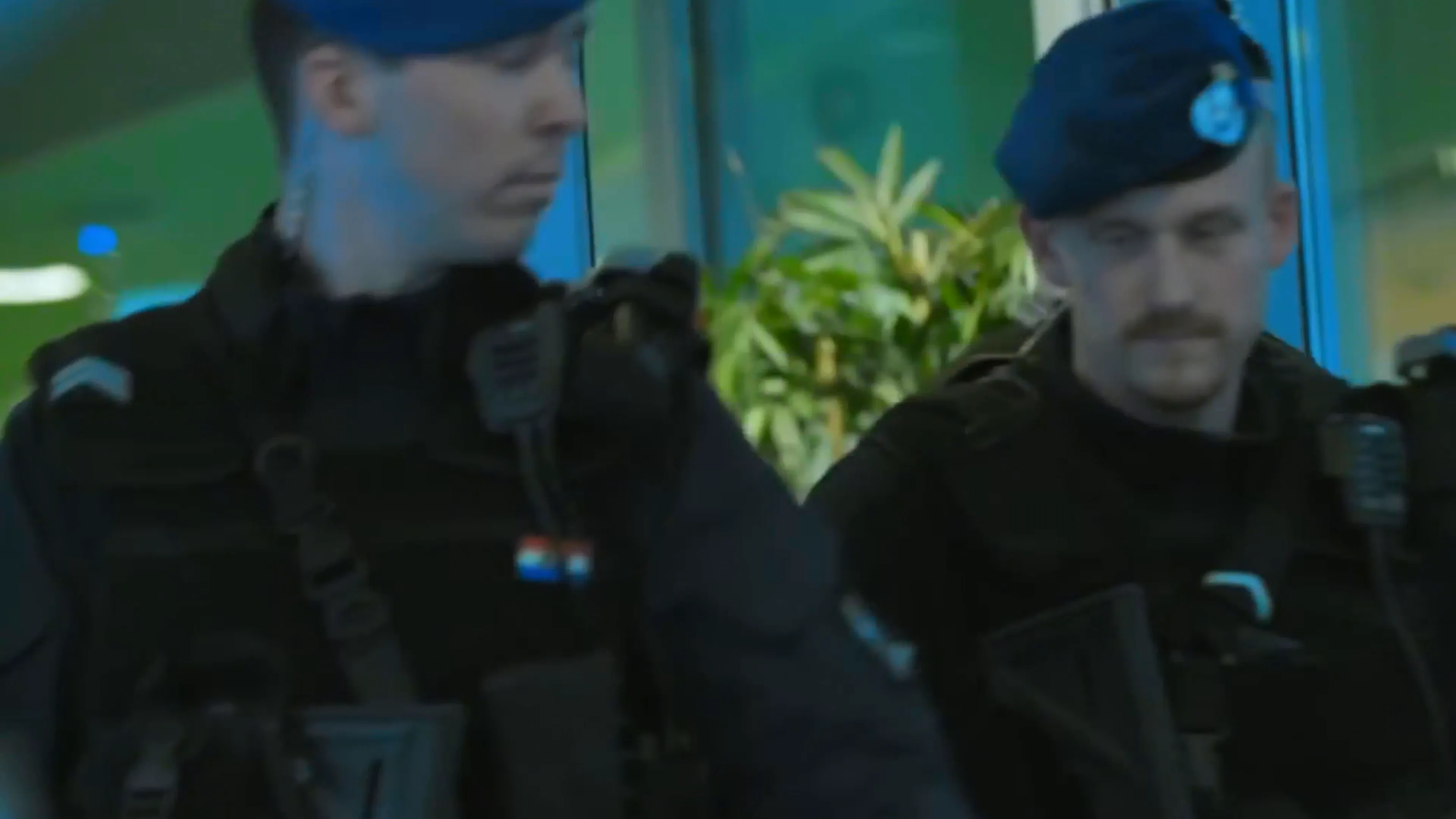
Border Control, Deportations, and Who Enters the Country
Central to Wilders’ argument is the claim that most arrivals enter via Germany and Belgium—countries he labels “truly safe”—and that many of these arrivals are not genuine asylum seekers but “migrants, fortune seekers” coming for housing, benefits, and relationships. He insists that all criminal foreigners should be deported from the Netherlands.
He frames this as a security and cultural threat, saying that “too many of them are eager to stamp their mark of intolerance and hate and even conquer us and our society,” and repeats his commitment: “our borders will be closed again immediately.”
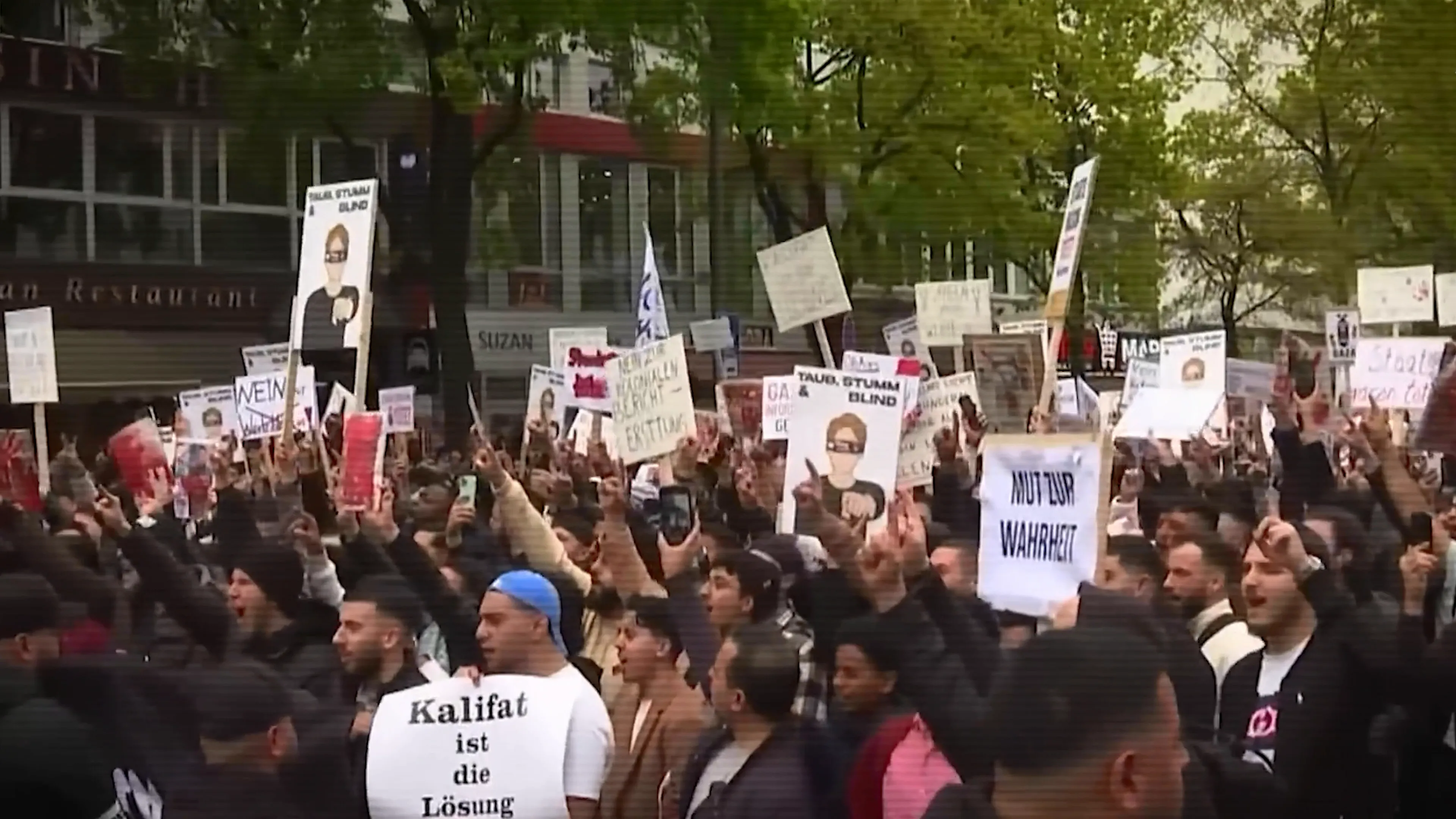
Political Betrayal and the Three Propellers of Islamization
Wilders criticizes other parties—naming the VVD, NSC, and BBB—for rejecting his asylum plan months earlier, a disagreement he says led to the fall of the cabinet. He frames the PVV as the persistent actor that “never gives up.”
He warns of a future in which his fate will be that of the electorate and their children unless three forces are stopped: 1) mass immigration, 2) what he calls “woke multiculturalism,” and 3) political cowardice. This trio is presented as driving what he calls “Islamization.”
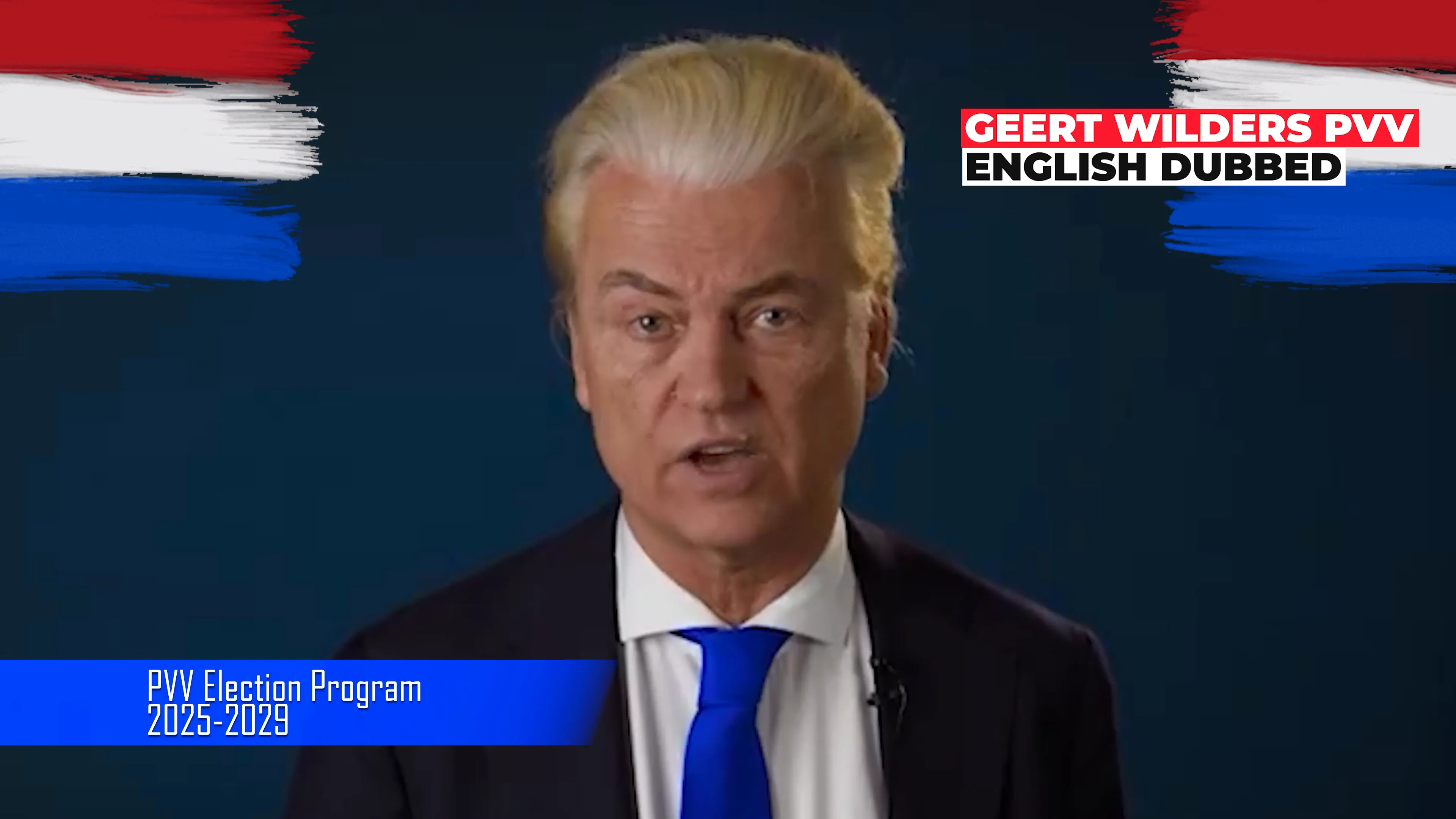
Overpopulation, Closing Asylum Centers, and Returns
Wilders declares the Netherlands “overpopulated, overcrowded,” and says that protecting the country requires closing asylum centers and refusing new asylum claims. He specifically proposes sending large groups—citing Syrians—back to their countries of origin or to other Arab countries.
He frames these measures as not only logistical but cultural: “we will also stop the ongoing Islamization of our beautiful country.”
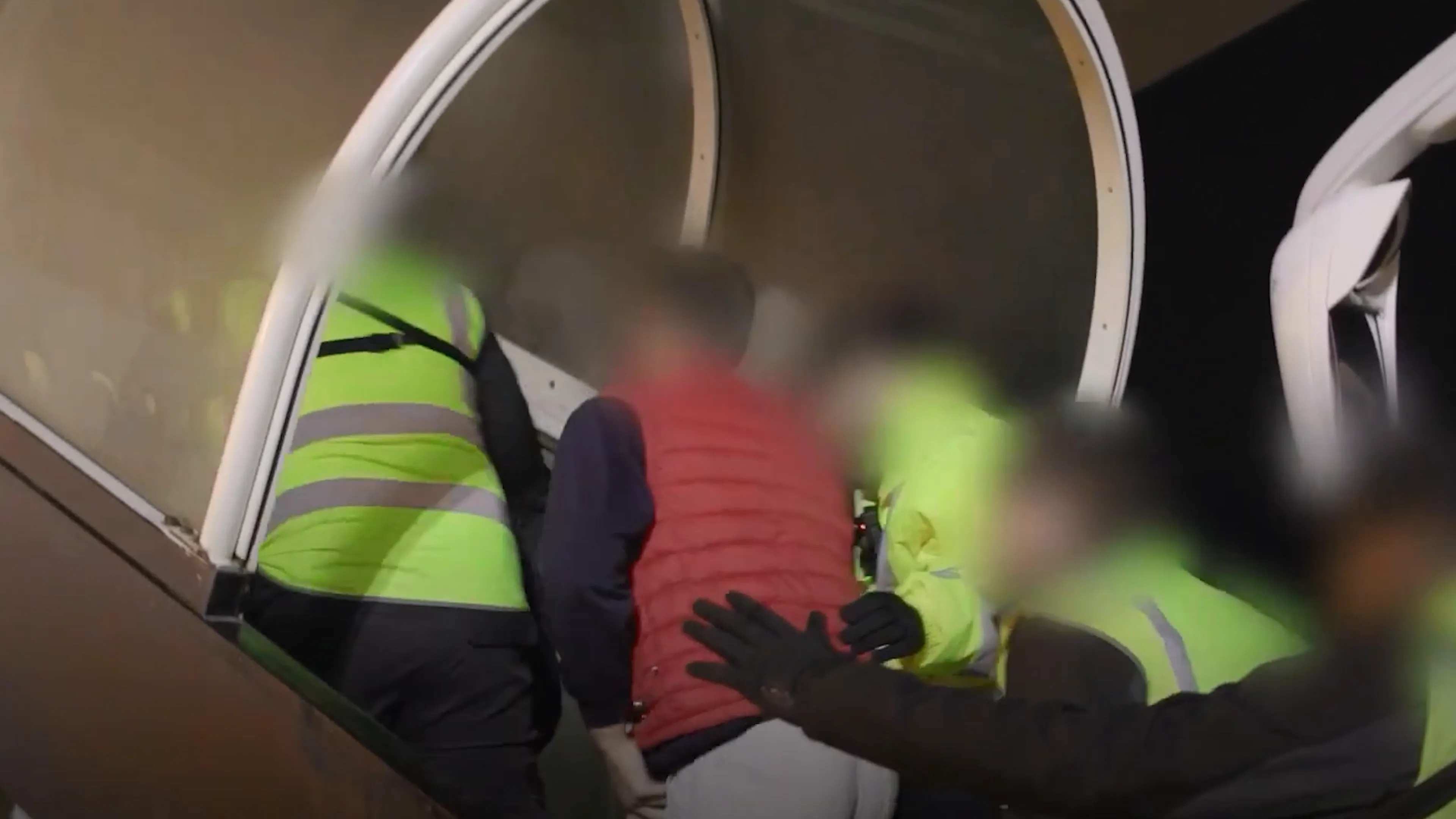
Islam and Freedom: A Core Claim
One of the most emphatic and controversial claims in the speech is that “Islam and freedom do not go together.” Wilders urges the immediate return of 60,000 Syrian refugees from the Netherlands to Syria and asserts that a recent national poll found more than 60% of Dutch people believe Islam does not belong to Dutch society.
He adds a caveat—“not every Muslim is an extremist, in fact most are not”—but continues to argue that “too many of them are eager to stamp their mark of intolerance and hate and even conquer us and our society.”
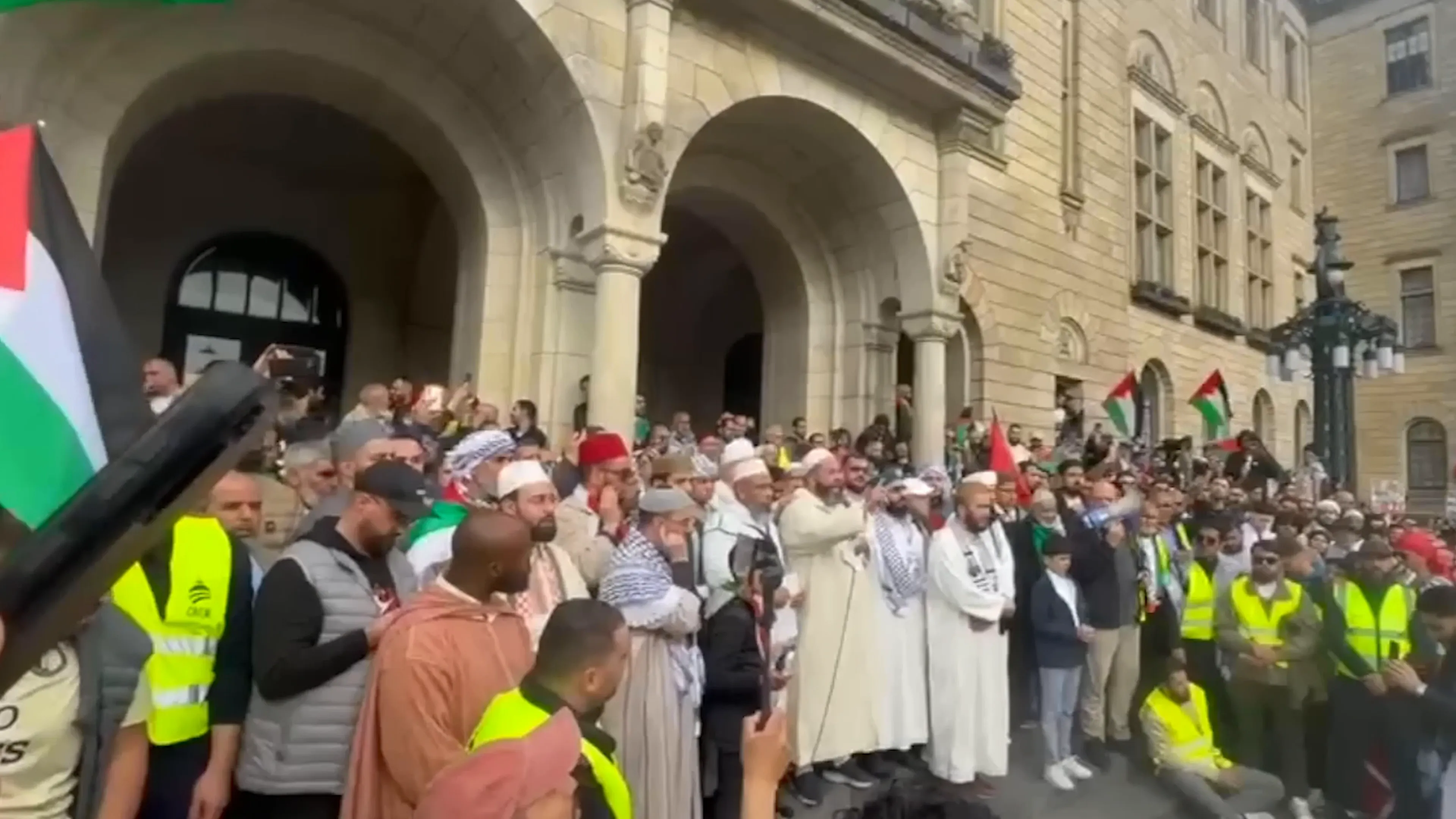
Personal Sacrifices and Public Incidents
Wilders reflects on personal consequences of his positions: “thousands of death threats and many fatwas from foreign imams” have forced him into restricted personal freedom for more than 20 years. He uses this to underline his determination: “I will continue, because Islam does not belong in our country.”
He cites public incidents to bolster his claims, describing an Easter Sunday in Rotterdam when, he says, the city centre was “taken over by screaming Arab-speaking imams” with followers waving extremist flags and shouting slogans, and recounts that on May 5th—Liberation Day—Dutch flags were absent in many immigrant neighborhoods while Palestinian flags were present.
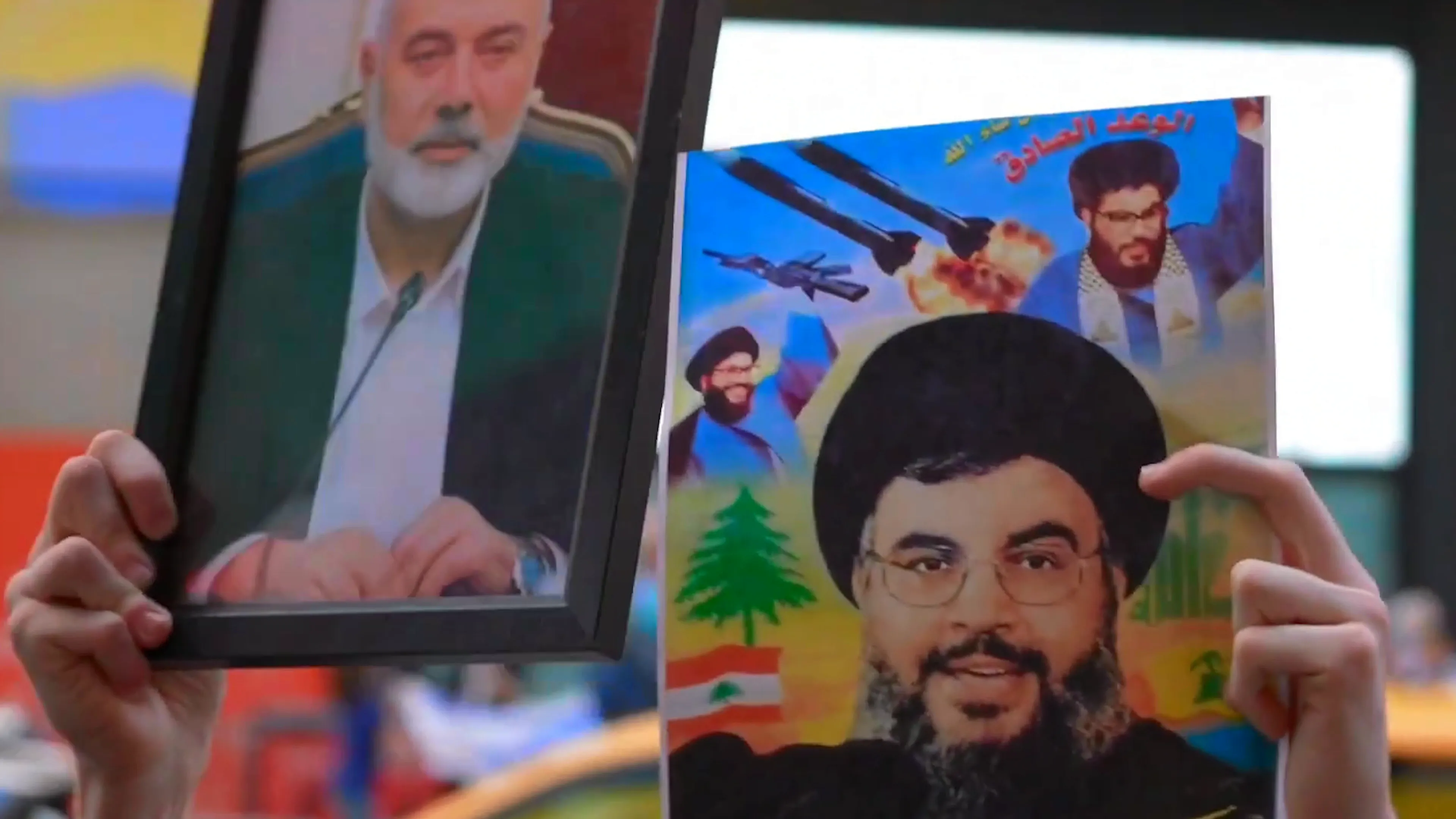
Economic and Social Policies for the Dutch People
Alongside immigration and cultural policies, Wilders presents an array of economic proposals aimed at easing household costs: setting VAT to zero on groceries, enforcing price regulation, lowering rents by 10%, cutting the VAT on energy from 21% to 9%, abolishing the health insurance deductible, and restoring dental care to the basic package with reimbursement.
He also promises funds to keep regional hospitals open, investments in defence, and a significant push for additional housing construction.
How to Pay for It: Funding Through Reallocation
To fund these commitments, Wilders proposes reallocations and cuts: instituting an asylum stop, abolishing certain subsidies, shutting down the public broadcaster (NPO), ending development aid to Africa, and reducing payments to the European Union and to Ukraine. “Let others pay a bit more for a change,” he says, asserting the money should be spent on Dutch citizens instead.
He frames this fiscal pivot as putting the Netherlands first: “this is your country, and the PVV is here for you.”
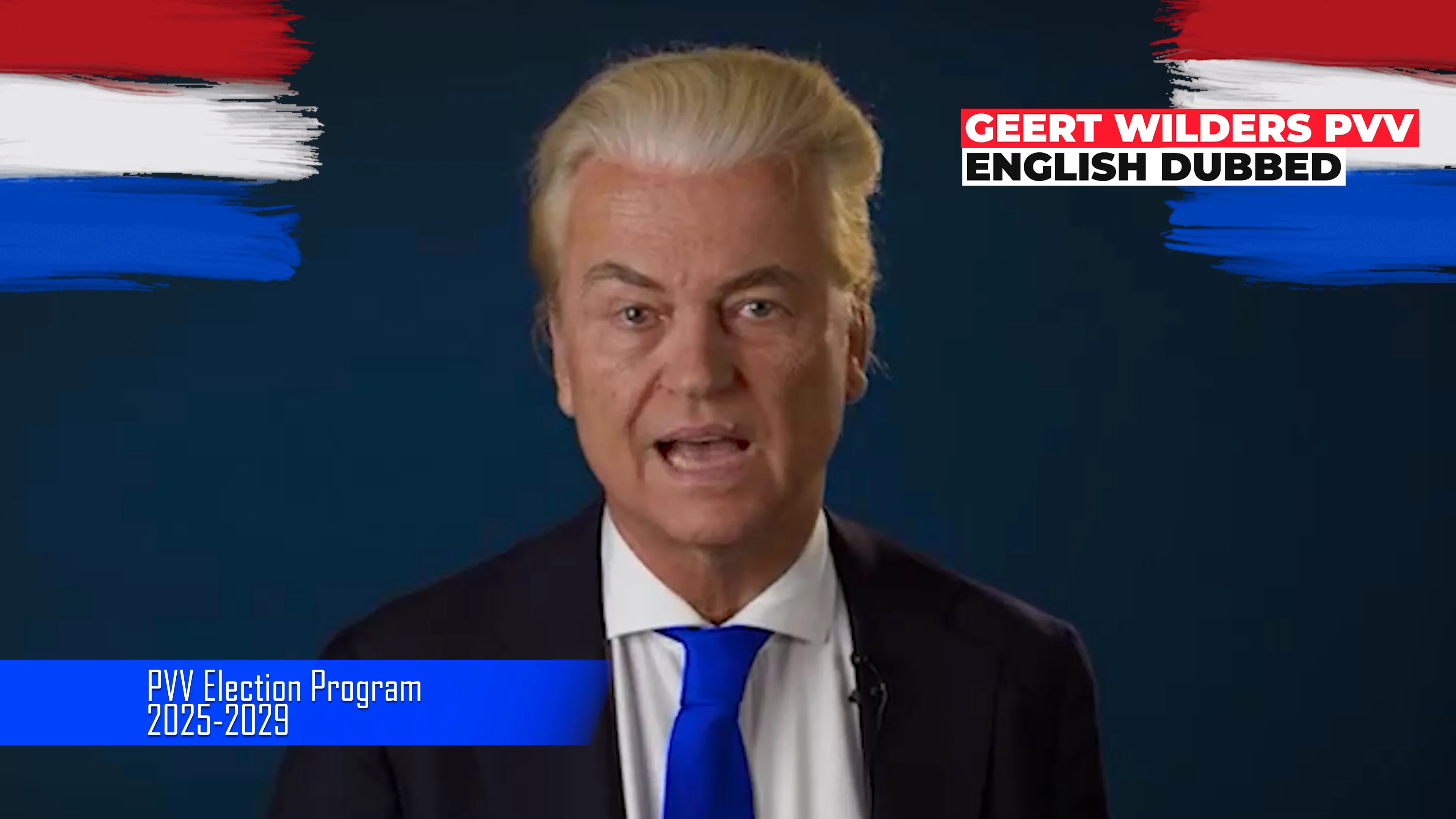
Patriotism, Heritage, and the Old Values
Wilders ties his platform to patriotism and traditional values. He quotes Tolkien—“I love only that which they defend”—to illustrate that politics is a tool to defend “God, Homeland, and Family.”
He argues these values stem from a Judeo-Christian civilization that, in his view, underpins democracy, freedom of speech, conscience, and equality before the law. Contrasting that, he labels Sharia law as “hell and tyranny.”
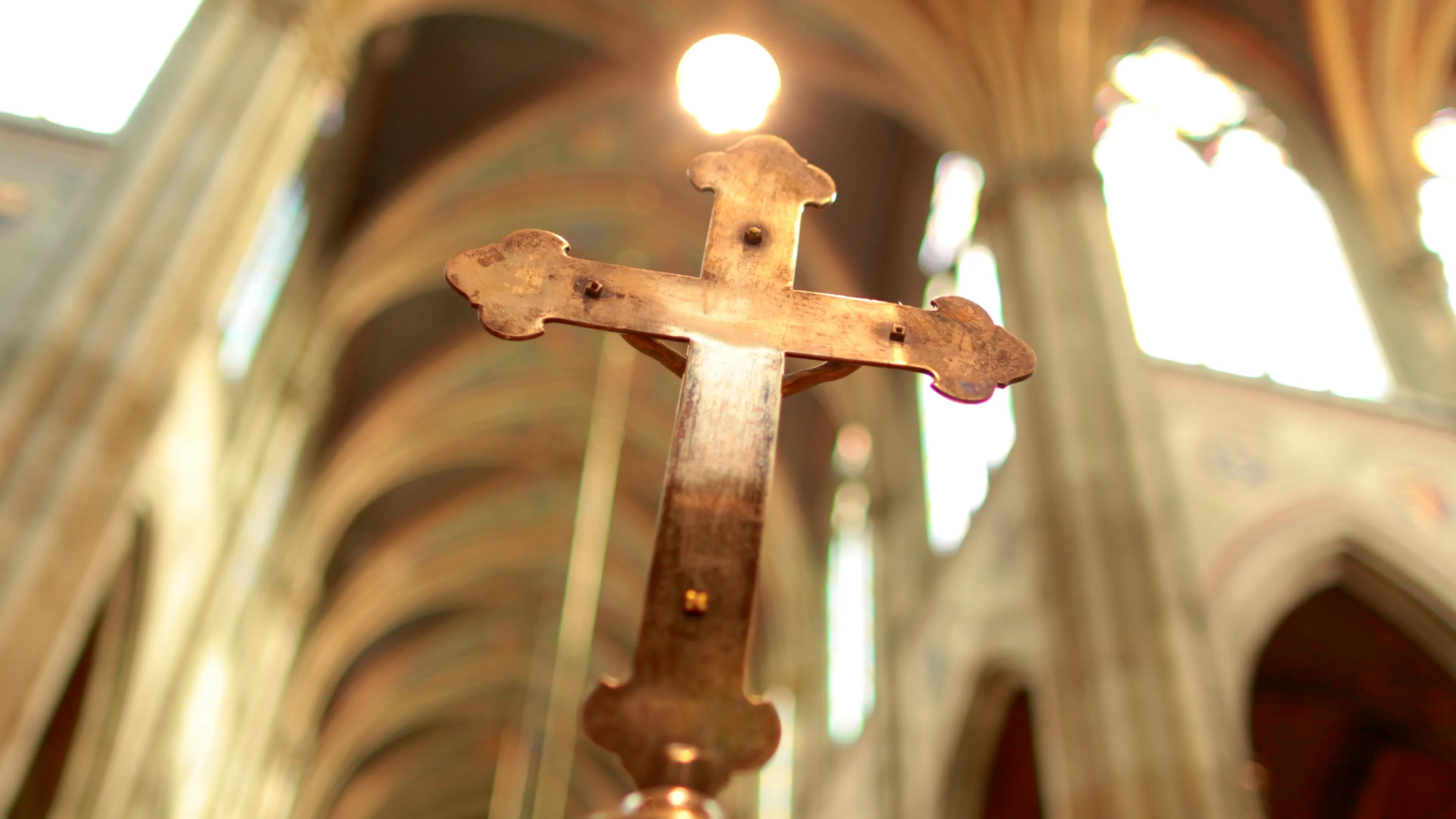
Final Call to Patriots
In closing, Wilders calls on supporters to be loud and assertive, to confront what he calls “Islam appeasers” and “cultural relativists,” and to “claim the future.” He ends by reiterating confidence that the Netherlands—and like-minded countries—will be “in safe hands.”
He thanks the audience and delivers a final appeal to patriots: “The future is yours, the future is ours.”
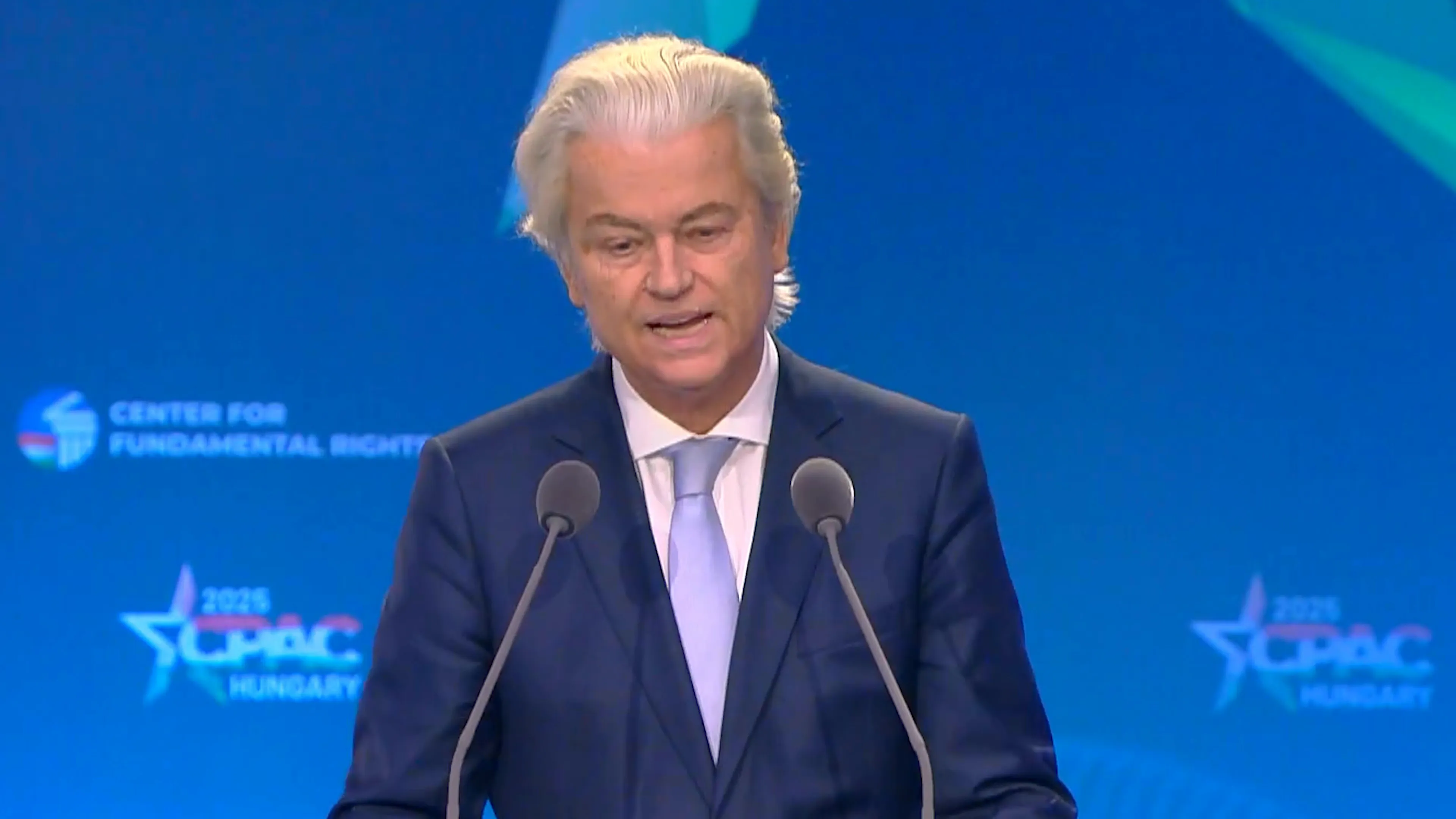
Conclusion
Geert Wilders’ manifesto is a tightly argued combination of immigration hardline policies, reallocation of public spending toward domestic priorities, and a cultural appeal to traditional values. Whether one agrees or disagrees with his positions, the speech lays out clear priorities that will shape the PVV’s campaign: an immediate asylum stop, stricter border controls, repatriations, economic relief measures for Dutch households, and a vocally patriotic stance.
For voters and observers, the speech signals a choice about the kind of Netherlands the PVV is promoting—one that places sovereignty, cultural homogeneity, and national security at the centre of its agenda. As Wilders himself insists, these elections are, in his words, “the most important ever.”
